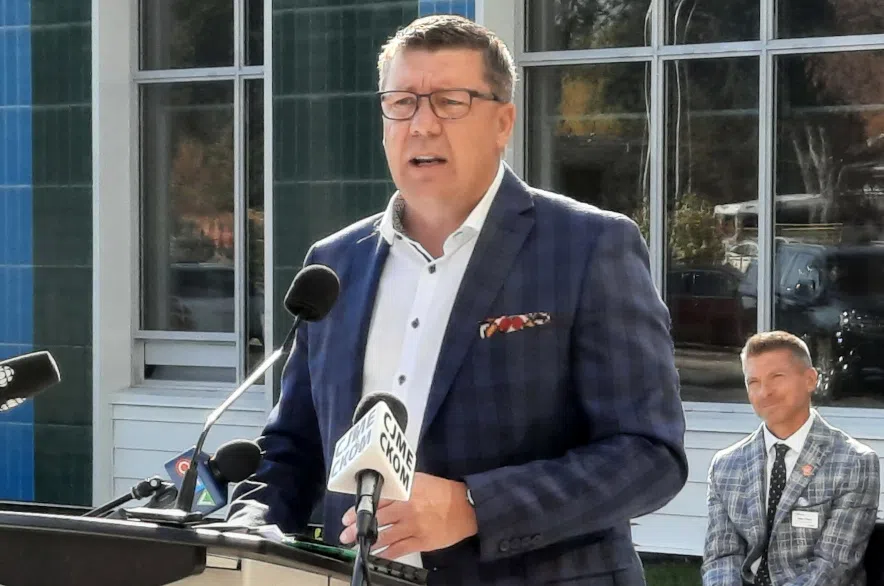Canada’s premiers ended their annual summer meeting on Wednesday with talk about where the federal government’s nose should and should not be.
A news release said the premiers reflected on the state of federal-provincial-territorial relations and how things could be improved.
A final news conference included talk about immigration, housing and the economy.
Premiers seemed to be in agreement that the federal government has been bringing down policies that step into provincial and territorial jurisdiction without consulting that level of government – pointing to things like the school lunch program and dental care.
This, while there are things that are under federal jurisdiction which need attention.
In response to a question asking what policy the premiers would each put forward to improve affordability for Canadians, Premier Scott Moe reached for the familiar at first – saying he’d tell the prime minister to cut the carbon tax.
“I don’t think that would surprise anyone here,” said Moe.
He said Canadians are struggling with affordability and part of that is the cost of fuel.
“Multiple areas of the nation have made different decisions, arriving at many similar savings for the residents that they represent, to ensure that life is more affordable from a provincial perspective and from a provincial action point,” said Moe.
But then he moved to a topic that had come up previously at the meeting – Canada meeting its commitment to NATO of spending two per cent of the country’s GDP on defence. The federal government said last week it’s looking to meet that target by 2032.
Moe said he would urge the prime minister, whether this one or the next, to “look seriously” at that goal. He said not only does Canada have the obligation to do it, but he said it’s important in a very “unrestful” world.
“We’re seeing conflicts in eastern Europe and other areas of the world that I think the investment is necessary as we look forward and ensuring our security and we’re taking care of our own security here in this nation,” said Moe.
The premier also talked about the possibility of retaliation from the next U.S.A. administration economically if Canada doesn’t meet the commitment quickly, possibly in the form of tariffs on Canadian exports.
Newfoundland and Labrador recently announced a lawsuit over the equalization formula, which Saskatchewan has said it will apply to be an intervenor.
In response to a question about that suit, Premier Scott Moe said on Monday that equalization has been talked about around the premiers’ table for a number of years.
“Saskatchewan, not I would say unique, but does have the situation where a couple of decades ago we were on the receiving end of the equalization formula and the last 15 or so years we have not been,” said Moe.
He said Saskatchewan believes there are flaws in the formula and what’s included in the calculation.
This summer meeting was held in Halifax under presiding council chair Tim Houston. Next month Ontario Premier Doug Ford will take over as chair of the council.







